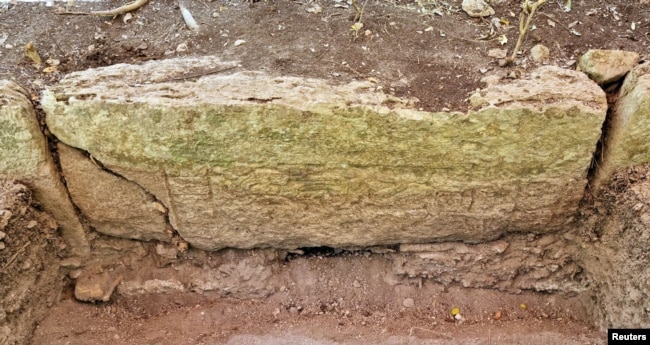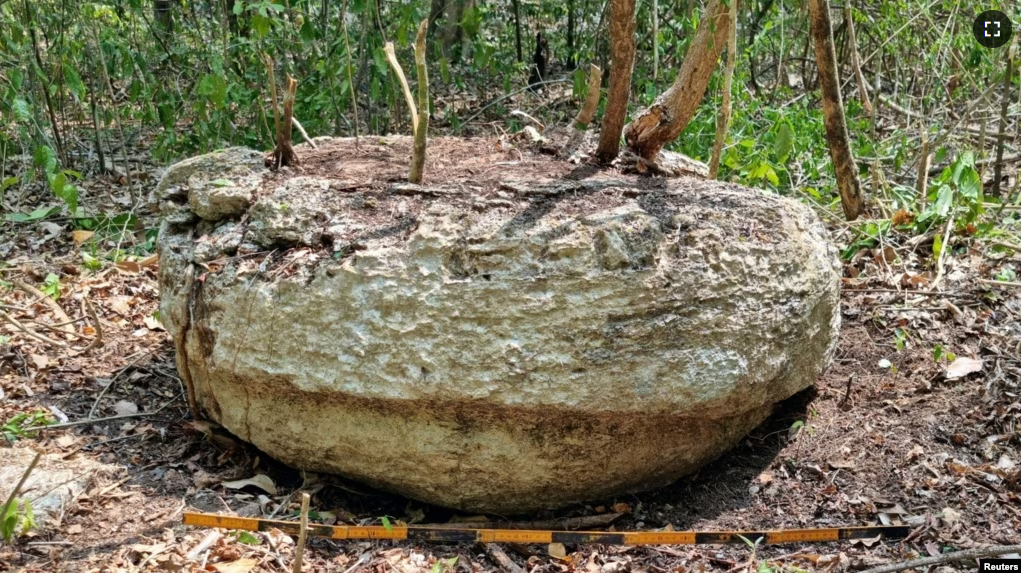Mexico’s human history agency says another ancient Mayan city has been discovered in forests in the southern part of the country.
The country’s anthropology organization INAH announced the discovery recently.
INAH said the newly discovered city includes large pyramid-like buildings, stone columns and other structures placed in circles.
The agency named the city Ocomtun – meaning “stone column” in the Yucatec Maya language. It would have been an important center between 1750 and 1000 years ago.
The ancient city is in the Balamku ecological reserve on the country’s Yucatan Peninsula. It was discovered during a search of a largely unexplored area that is larger than the country of Luxembourg. The search took place between March and June using aerial laser mapping (LiDAR) technology.
The Mayan civilization was known for its complex mathematical calendars. Mayans controlled a large area in southeast Mexico and other parts of Central America. Political collapse ended the culture hundreds of years before the arrival of Spanish ships.

The last Maya center fell in a military campaign more than three hundred years ago.
The Ocomtun site has a central area on high ground surrounded by wet areas. Lead researcher Ivan Sprajc said in a statement that it includes several pyramid-like structures up to 15 meters tall.
The city also had an area for playing a kind of game with a ball.
Ancient ball games were widespread throughout the Mayan area. They involved passing a rubber ball representing the sun across a court without the use of hands. Players then tried to get the ball through a small stone hoop. The game is believed to have had an important religious purpose.
Sprajc said his team had also found central altars, which may have been designed for community religious events, in an area closer to the La Riguena river. Still, more research is needed to understand the cultures that once lived there.
The site probably declined around one thousand years ago judging from materials taken from buildings, Sprajc said.
I’m John Russell.
Sarah Morland reported on this story for Reuters. John Russell adapted it for VOA Learning English.
___________________________________________________________________
Words in This Story
anthropology – n. the study of human societies and cultures
pyramid –n. a large, triangular structure made of stone or earth
column – n. a long post made of stone that is used as a support in a building
ecological – adj. describes a science that deals with the relationships between living things and their environment (ecology)
calendar –n. a document that shows the days, weeks and months of a year
hoop – n. a ring that a ball must go through in order to score points
altar – n. a raised place on which gifts are offered in some religions
